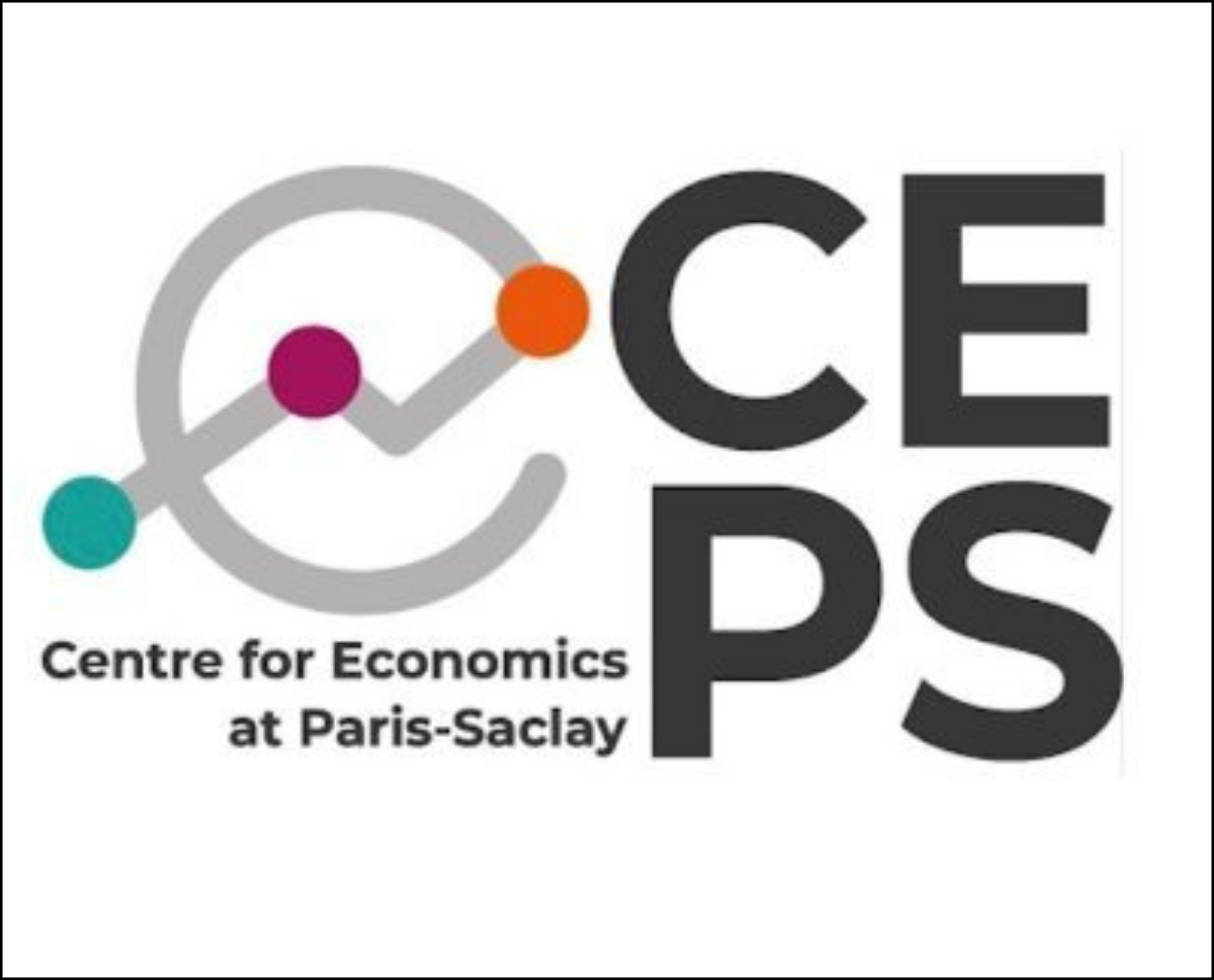CEPS, a laboratory at the heart of social issues

The laboratory relies on strong inter-institutional collaborations within the European area. Its scientific policy, organized around three axes, focuses on economic theory, public policy and macroeconomics.
Meeting today's economic challenges
CEPS is involved in an innovative project with the EPEE laboratory at the University of Evry Paris-Saclay. The combination of research work and master's and doctoral programs aims to train new cohorts of economists in response to the social challenges raised by public debate and the needs arising from the implementation of specific public policies.
The work carried out is based on the complementarity between theoretical foundations and operational applications, to answer questions as diverse as the links between wealth inequalities, climate change and health effects, and thus guide public and private decision-makers towards practices better adapted to the complexity of the situations encountered. This research is also part of a vast agenda on the allocation of scarce resources, and incentive schemes to achieve normative objectives, whether they come from a market and thus from strategic interactions, or from individual decision-making actors such as a municipality, a region or a state. Finally, this leads to a more global exploration of the smooth functioning of political systems that govern rules, and the way they are adopted, through voting and representation processes, which depending on their format can generate multiple outcomes, or even be manipulable.
Collaboration with other disciplines
CEPS stands out for its collaborations at the interface of other disciplines, including applied mathematics, environmental sciences, demography, history and political science. For example, one of the research projects being carried out involves studying the effects of the historical accumulation of different cultures, as reflected in toponymic diversity, on long-term growth. The aim is to develop new tools for measuring well-being, but also for supporting local democracy, to take better account of this diversity.
These interdisciplinary collaborations are fostered by the rich scientific ecosystem of the Université Paris-Saclay, supported, among others, by the GS Economie et Management. The proximity of the Maison des Sciences de l'Homme (MSH) Paris-Saclay facilitates the creation of interdisciplinary projects and the development of new research synergies.
National and international collaborations
Internationally, CEPS is the driving force behind the Virtual Market Design Seminar, a bi-weekly seminar co-organized with the Max Planck Institute in Bonn, the University of Cologne, and the ZEW (Zentrum für Europäische Wirtschaftsforschung) in Mannheim. This online seminar, launched during the COVID pandemic, brings together researchers from all geographical horizons, without travel, and invites guest speakers to discuss the latest advances in allocating scarce resources and making markets work to achieve socially desirable goals.
This dynamic is also reflected in the organization of annual international events, including theEuropean Workshop on Market Design, a meeting now established in collaboration with ZEW and Rice University, and the Long-Run Dynamics in Economics conference , which focuses on the use of dynamic macroeconomic models to improve understanding of diverse long-term phenomena such as growth, health, demographics, sustainable development and inequalities.
Other, more occasional events, such as the PolEcon Political Economy Workshop last June, which brought together experts at the interface of economics and political science, are proposed each year as CEPS members' research agendas evolve.
Leading publications
Despite its modest team size, CEPS has distinguished itself by publishing articles in leading international journals, testifying to the recognition and influence of its research in a variety of fields. Some of these publications have had a major impact:
- “Pairwise Stable Matching in Large Economies”, published in Econometrica in 2021, explores matching processes and their characteristics on the populations involved. It provides new theoretical insights to address multiple applications of resource allocation without the use of a price.
- “Multinationals' Sales and Profit Shifting in Tax Havens”, published in the American Economic Journal: Economic Policy in 2022, analyzes multinationals' strategies towards tax havens, an important topic in current debates on taxation and international economic regulation.
- “Intragenerational Inequality Aversion and Intergenerational Equity”, published in the European Economic Review in 2022, deals with questions of intergenerational and intragenerational equity, a major issue in discussions on sustainability and long-term economic policies.
These publications demonstrate CEPS' influence in a wide range of research fields, and underline the international scope of its work. They also illustrate the laboratory's ability to combine fundamental and applied research, in response to contemporary economic issues. The work of the Centre d'Économie de l'ENS Paris-Saclay helps to inform public and private decision-makers, while actively participating in public debate on societal issues.
